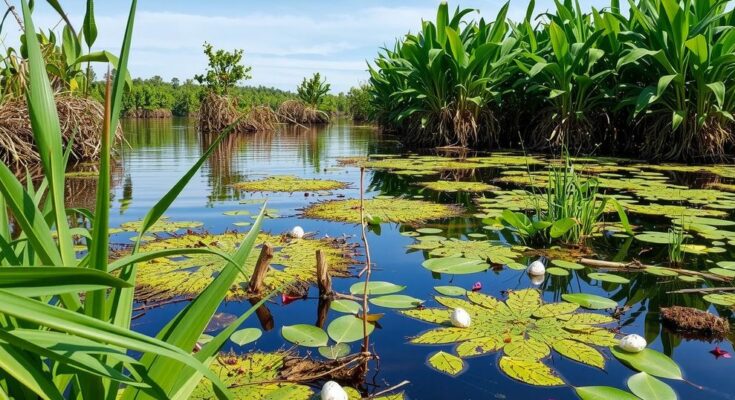In an assertive move under the banner of a national energy emergency, the U.S. Army Corps of Engineers is set to accelerate over 600 permit applications, stirring concerns among environmental advocacy groups. These permits encompass projects that pose a significant risk to vital wetlands and waterways, including a proposed 37-mile crude oil pipeline in Louisiana, which threatens 234 acres of wetlands adjacent to the Sabine National Wildlife Refuge and another pipeline running beneath the crucial waters of Lake Michigan, crucial for millions’ drinking water.
Moreover, critics argue that many projects subject to this fast-tracking appear to stray far from the energy domain. For instance, the Stibnite Gold Mine Project in Idaho aims to excavate gold and other minerals while adversely affecting 145 acres of wetlands and 21 miles of streams in the Payette National Forest. This raises alarm bells for activist groups like the Environmental Integrity Project, highlighting a disconnect from the stated energy needs.
“This is a false emergency,” declared Kristen Schlemmer, senior legal director at Bayou City Waterkeeper, emphasising the urgent need for action against climate change at this critical juncture. Trump’s executive order directs the Army Corps to utilise emergency permit provisions to bolster energy supply, prompting many agency heads to identify projects eligible for expedited review in the following month, with wetlands impact assessments governed by the Clean Water Act.
Many of these projects underpin the fossil fuel industry, comprising pipelines, gas-powered plants, and electric transmission lines, primarily concentrated in states such as West Virginia, Pennsylvania, and Texas. Experts unanimously stress that limiting global warming to a maximum of 1.5 degrees Celsius is imperative to prevent dire climate consequences, including rampant temperature rises and catastrophic sea-level increases.
David Bookbinder, director of law and policy at the Environmental Integrity Project, articulates concern regarding reduced public oversight throughout this process. “He’s telling the Corps of Engineers that it’s OK to cut down on the amount of public notice, the amount of public comment and the amount of time the Corps takes to review permits,” he noted, anticipating numerous legal challenges against these permits.
Highlighting the irony, he added, “We’re the world’s largest producer of natural gas. We’re the world’s largest producer of crude oil. It’s kind of hard to see how we have an energy emergency in the United States.” This scenario paints a picture of escalating tension between environmental preservation and industrial momentum, raising eyebrows as the country grapples with its energy policies amidst a climate crisis.
The U.S. Army Corps of Engineers has fast-tracked over 600 permit applications for energy-related projects that could damage critical wetlands. Key projects include a significant crude oil pipeline in Louisiana and one beneath Lake Michigan. Environmental groups criticize this move as unnecessary and detrimental to ecosystems, foreseeing legal challenges and questioning the validity of the declared energy emergency.
In summary, the accelerated review of permit applications by the U.S. Army Corps under Trump’s executive order poses serious threats to wetlands and waterways across the country. Environmentalists argue that many of these projects are misclassified as necessary for energy needs and call out the potential for serious ecological disruption. Legal challenges are anticipated as communities push back against what many perceive as an unfounded emergency and necessary environmental safeguards put at risk.
Original Source: insideclimatenews.org



